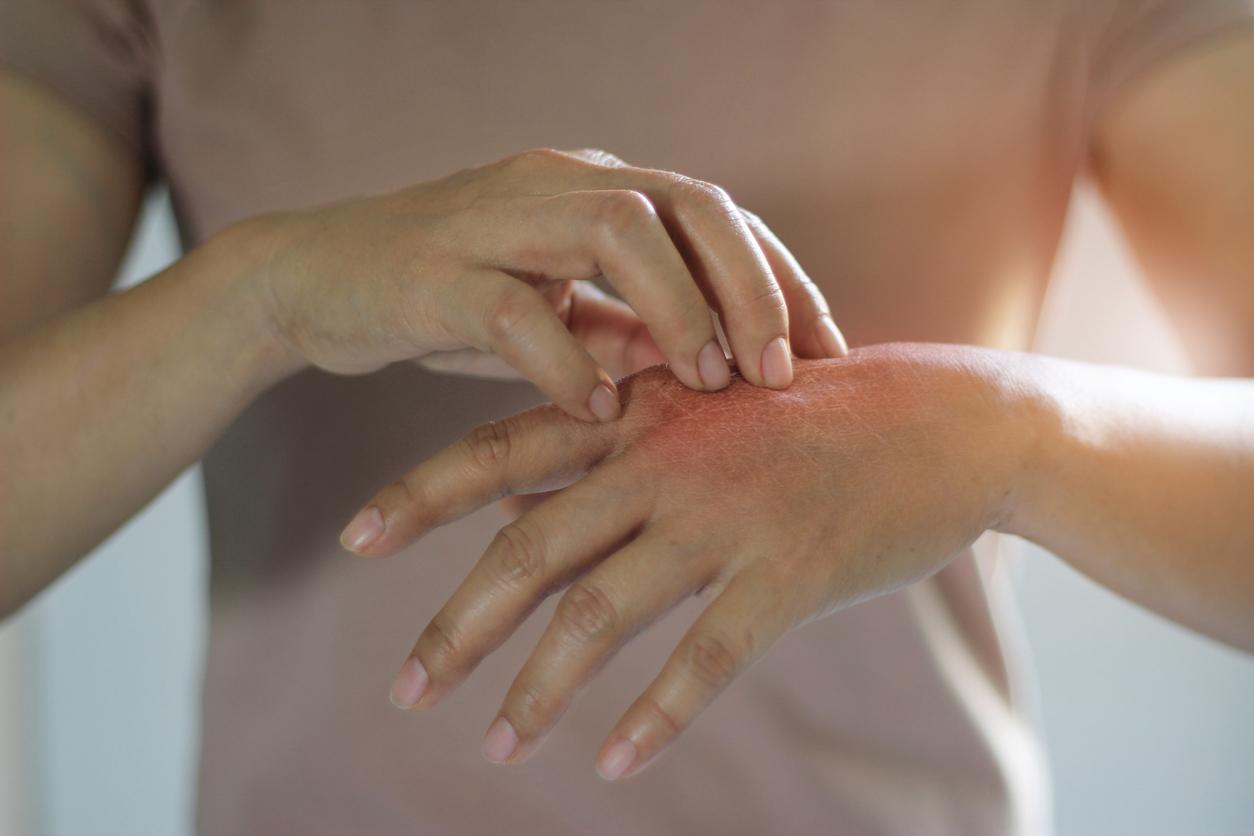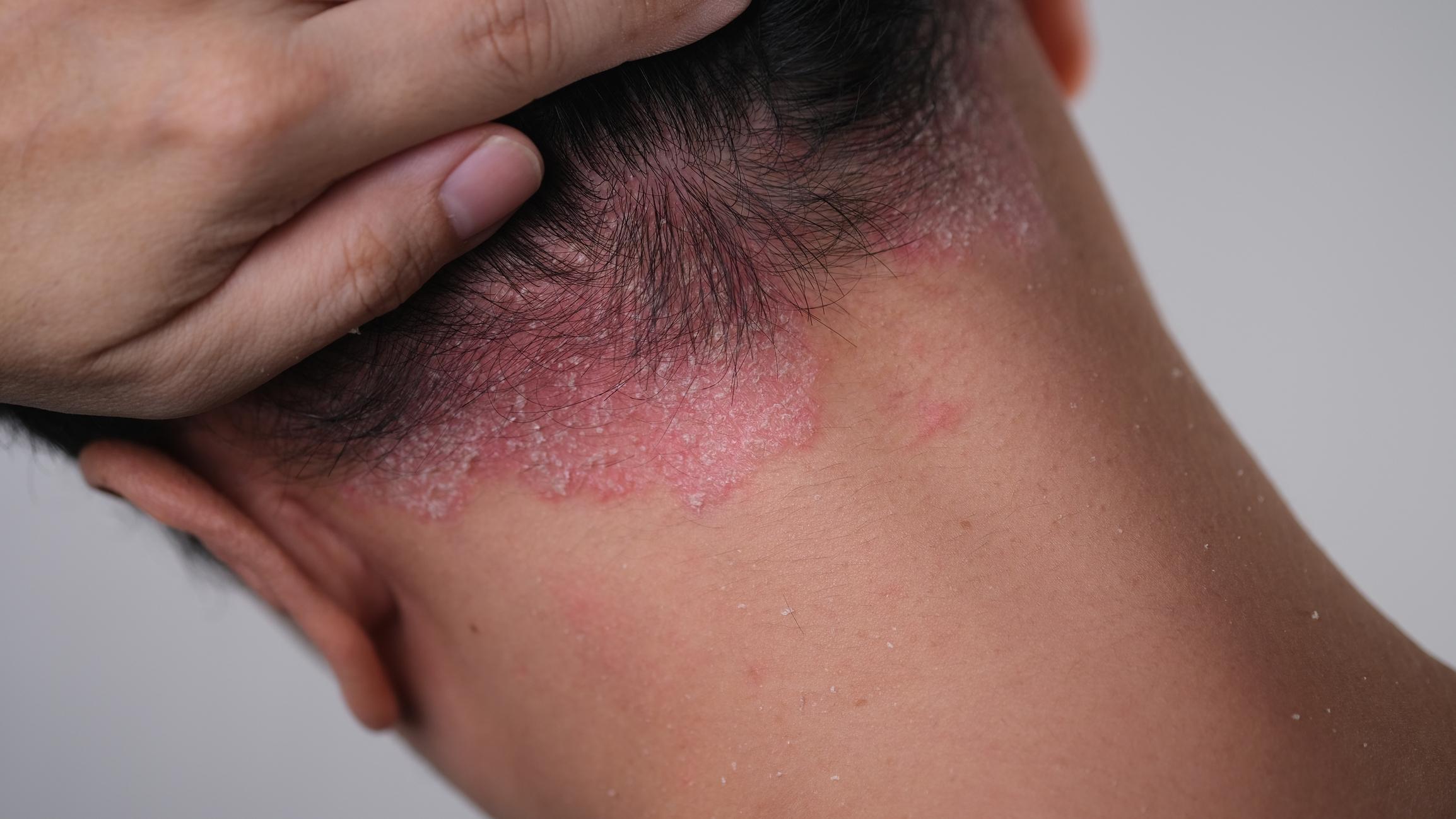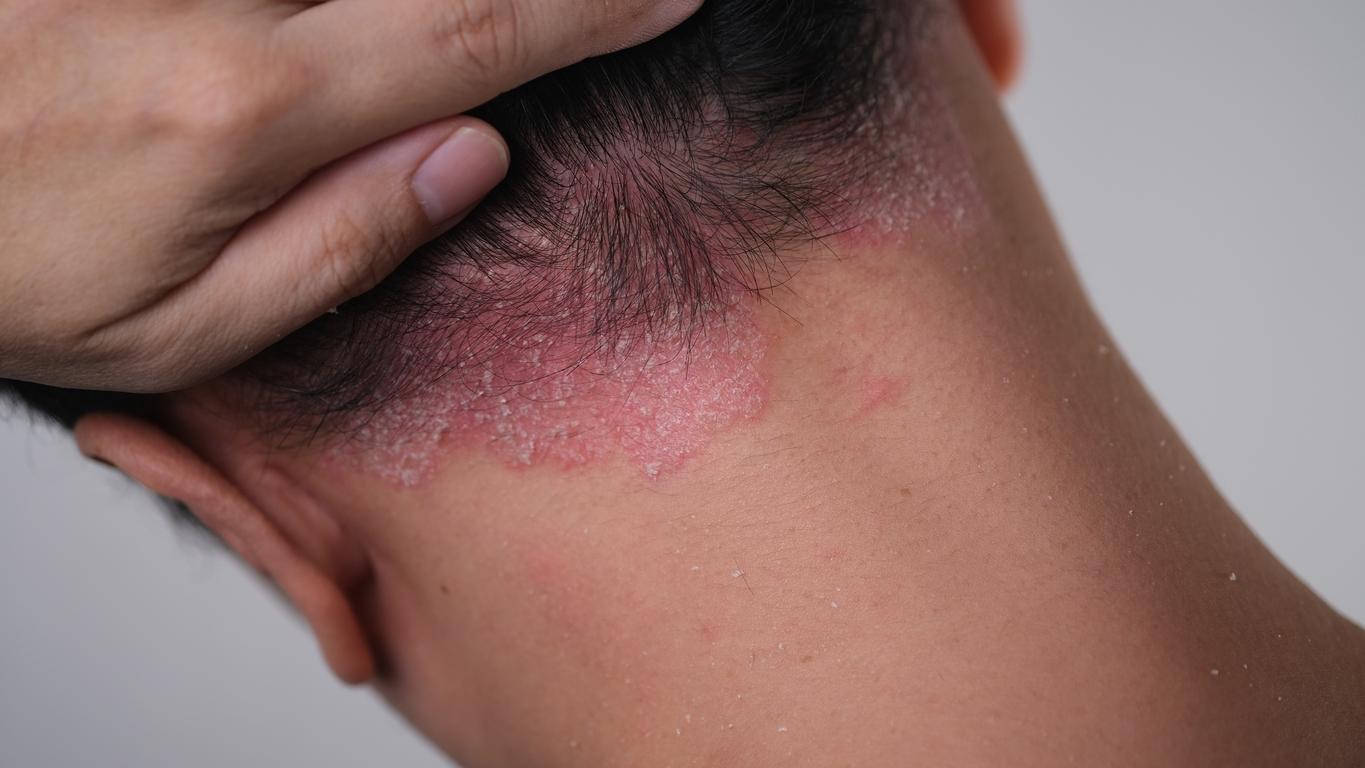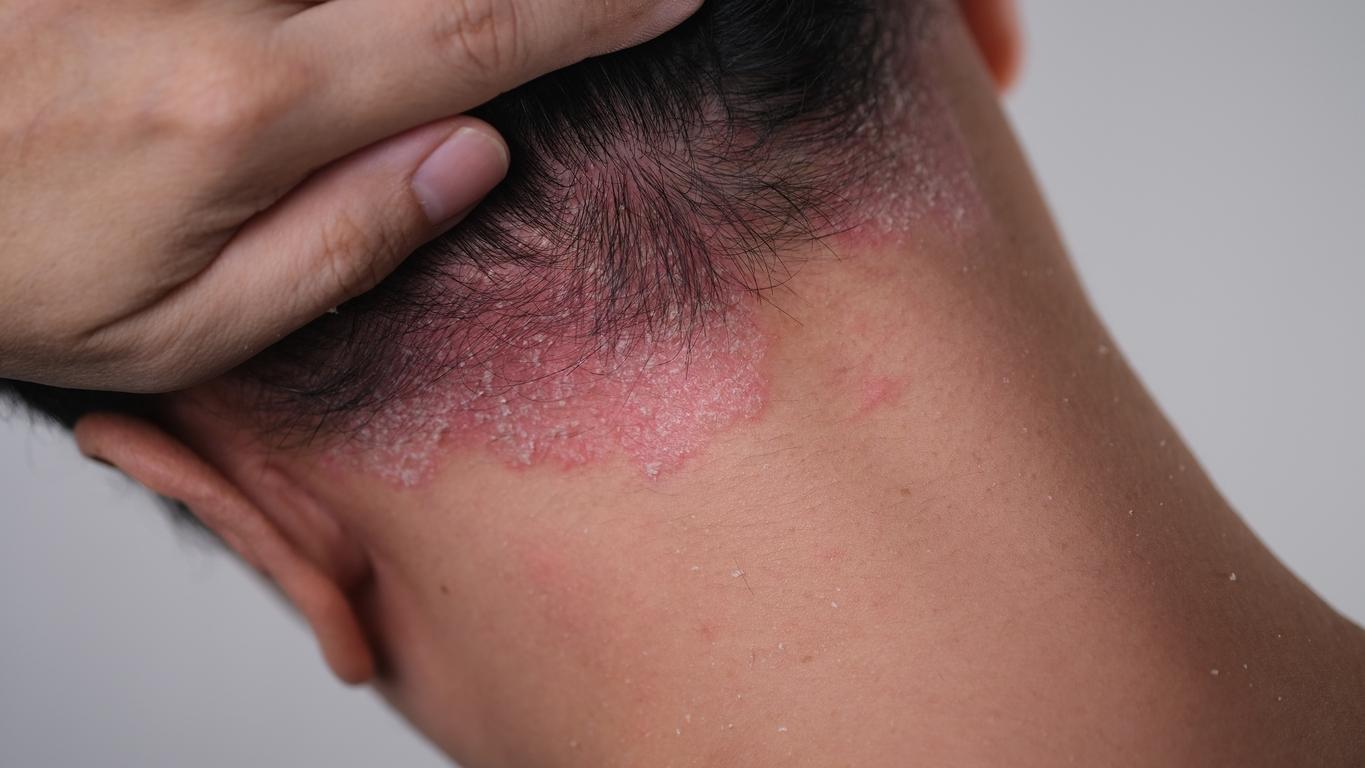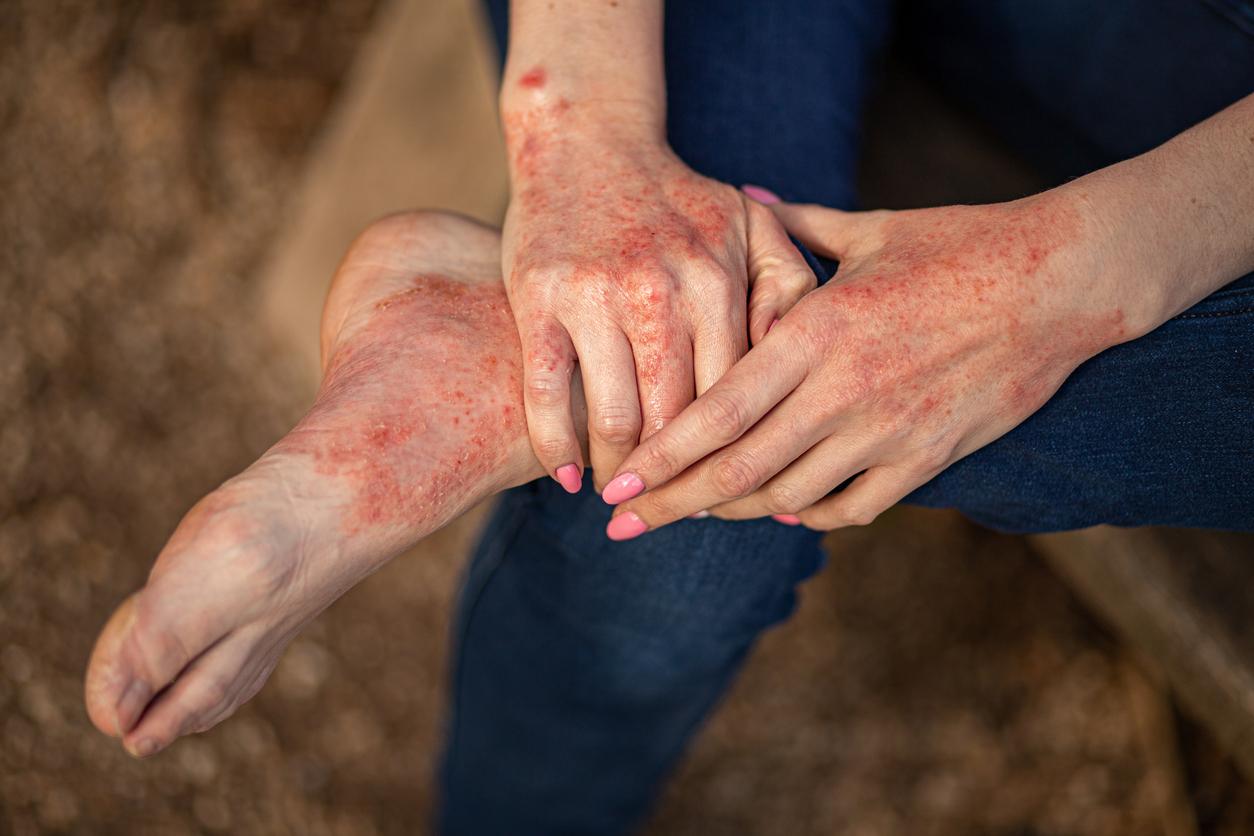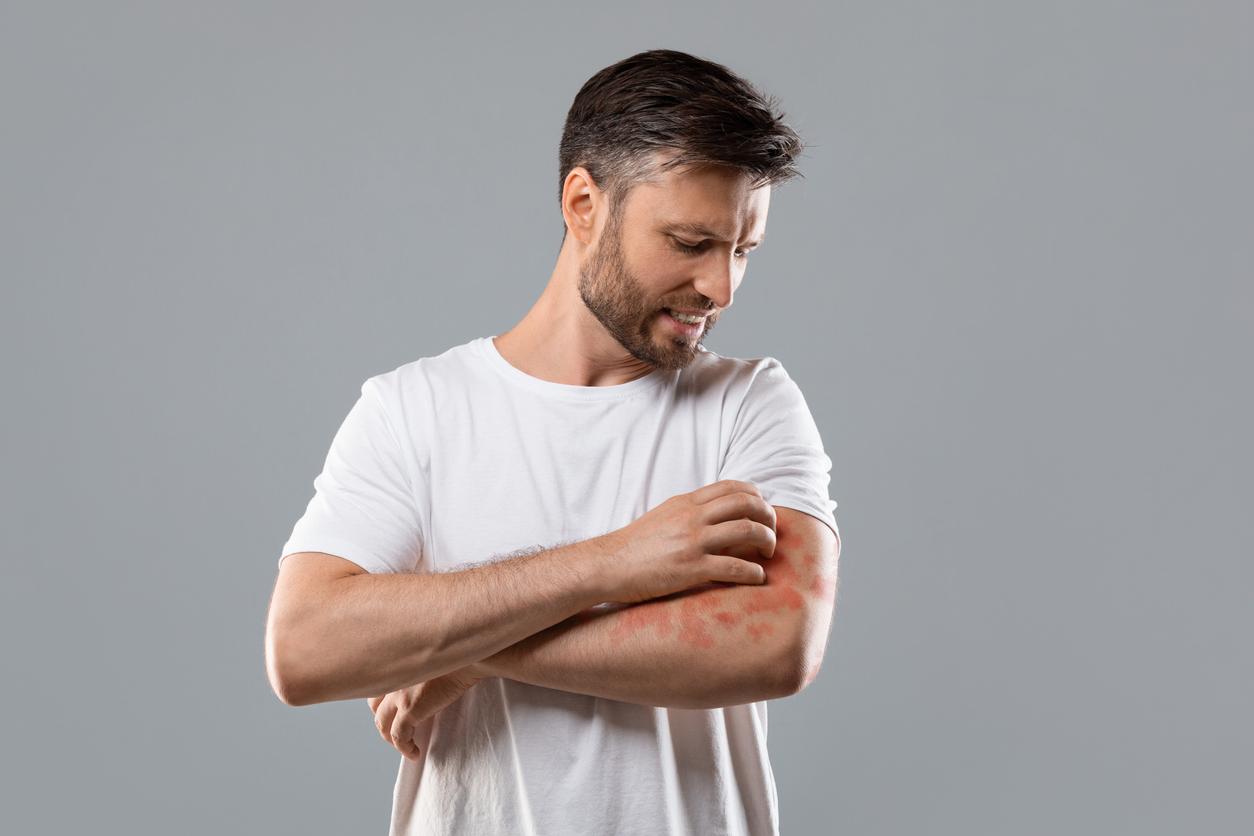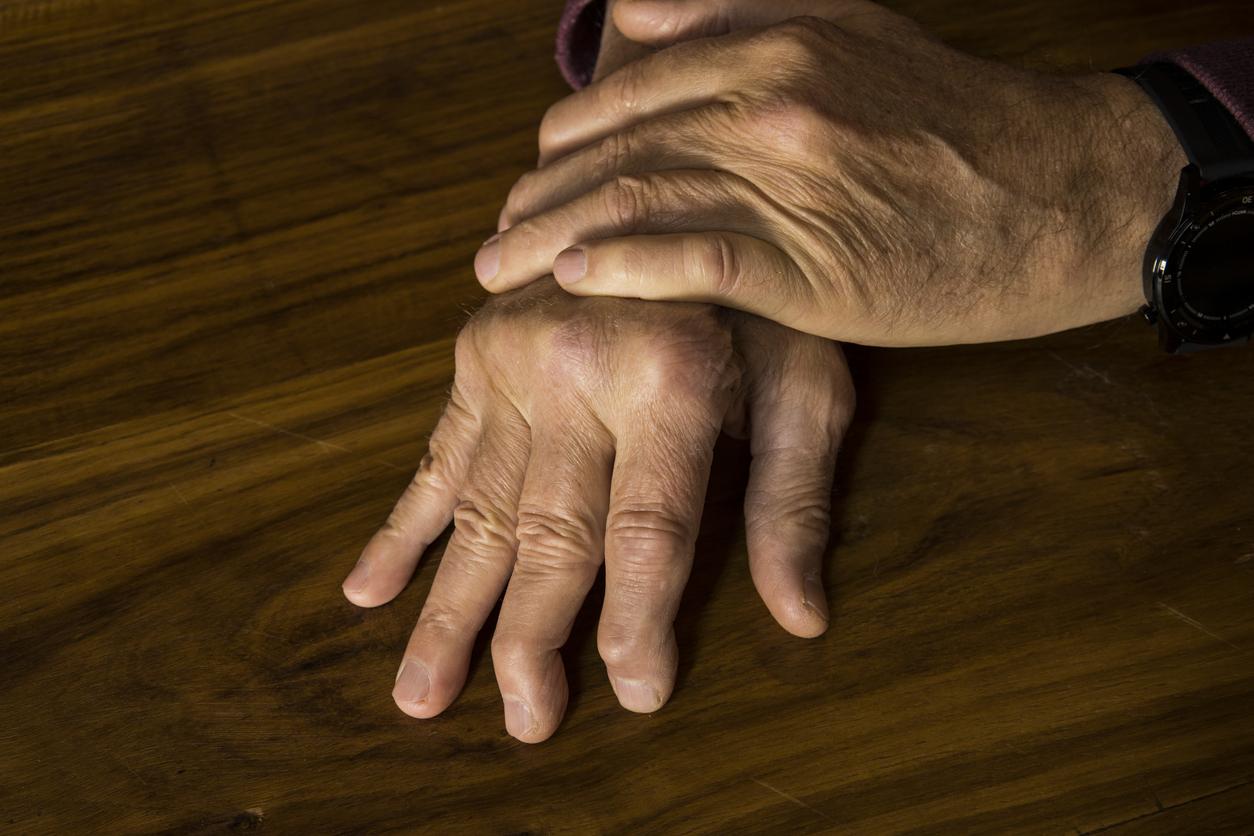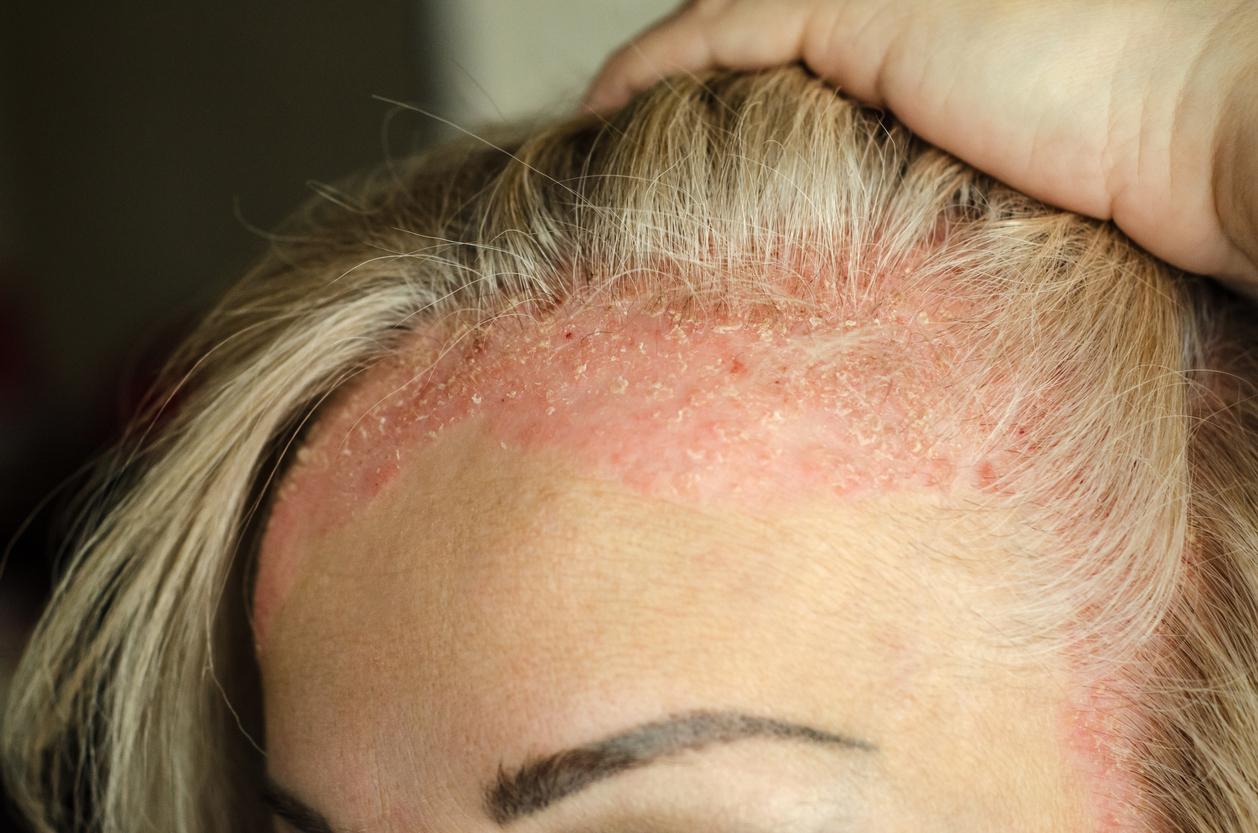Red patches dotted with scales, whitish films that can come off and sprinkle clothing. Psoriasis is often not very discreet, to the great dismay of the 2 to 3% of the French population who are affected. Because his favorite areas – hands, elbows, knees, scalp… – are most of the time exposed to all eyes. It’s a fact: this chronic inflammatory disease can seriously affect the quality of life, disrupt relationships with colleagues, friends, family, and even the intimacy of your couple.
“But today there is a wide range of treatments”, reassures Pre Marie Beylot-Barry, dermatologist.
Psoriasis: 1 problem, 4 solutions
>> Ointments, creams and lotions: effective during a flare-up
Dermatologists often note them on the prescription, as they are very effective during a flare-up. Topical corticosteroids and vitamin D3 analogues fight against inflammation and the abnormal multiplication of keratinocytes. Used alone or in combination, they are generally to be applied once a day, for a few weeks in the acute phase, or once a week for maintenance.
>> Ultraviolet: when local treatments are no longer enough
When local treatments are no longer sufficient, when the psoriasis spreads, you have to move up a gear. This is where phototherapy comes in. Ultraviolet rays relieve inflammation. There are two types: PUVA therapy, which uses UVA rays, and UVB phototherapy. An attack treatment of two to three sessions per week for two months will make it possible to fade, or even completely eliminate the lesions. But if they are beneficial, these artificial UV rays also have a much darker side. At high doses, they prematurely age the skin, and expose you to the risk of skin cancer. These sessions must therefore be carried out under dermatological control, and limited in time.
>> Oral treatment: for severe psoriasis
When the psoriasis is severe, and only in this case, oral treatment can be put in place. Among the molecules available, methotrexate is most often prescribed. “It mainly has an action on inflammation.” It is taken once a week, either as a tablet or as an injection, mostly subcutaneously. It is effective, but can be accompanied by side effects, which requires monitoring by regular blood tests. It is also totally contraindicated in pregnant women.
>> Biotherapies: THE revolution
“These biodrugs, often monoclonal antibodies, target inflammatory proteins that are implicated in psoriasis”, explains Pre Beylot-Barry. Using a pen or a syringe, the person suffering from psoriasis injects themselves subcutaneously, at a variable rate depending on the molecule, from once every week to once every twelve weeks. . “The very first biomedicines were anti-TNF alpha.”
Since then, others have arrived on the market. If these biotherapies are praised for their effectiveness, having allowed many people to no longer suffer from their psoriasis, they also have major drawbacks. Already, their astronomical cost: several hundred, even several thousand euros for a single injection. Then, by weakening the immune defences, they increase the risk of infection. “This is why they are considered exceptional drugs. The initial prescription must be made at the hospital, and they can only be prescribed in the event of failure, or contraindication, to other treatments. .”
Sources:
Read also :
- Eczema, allergies, excess sun, psoriasis: how to tell the difference?
- Psoriasis: what if the solution came from marine lecithin?
- 4 natural remedies for psoriasis















